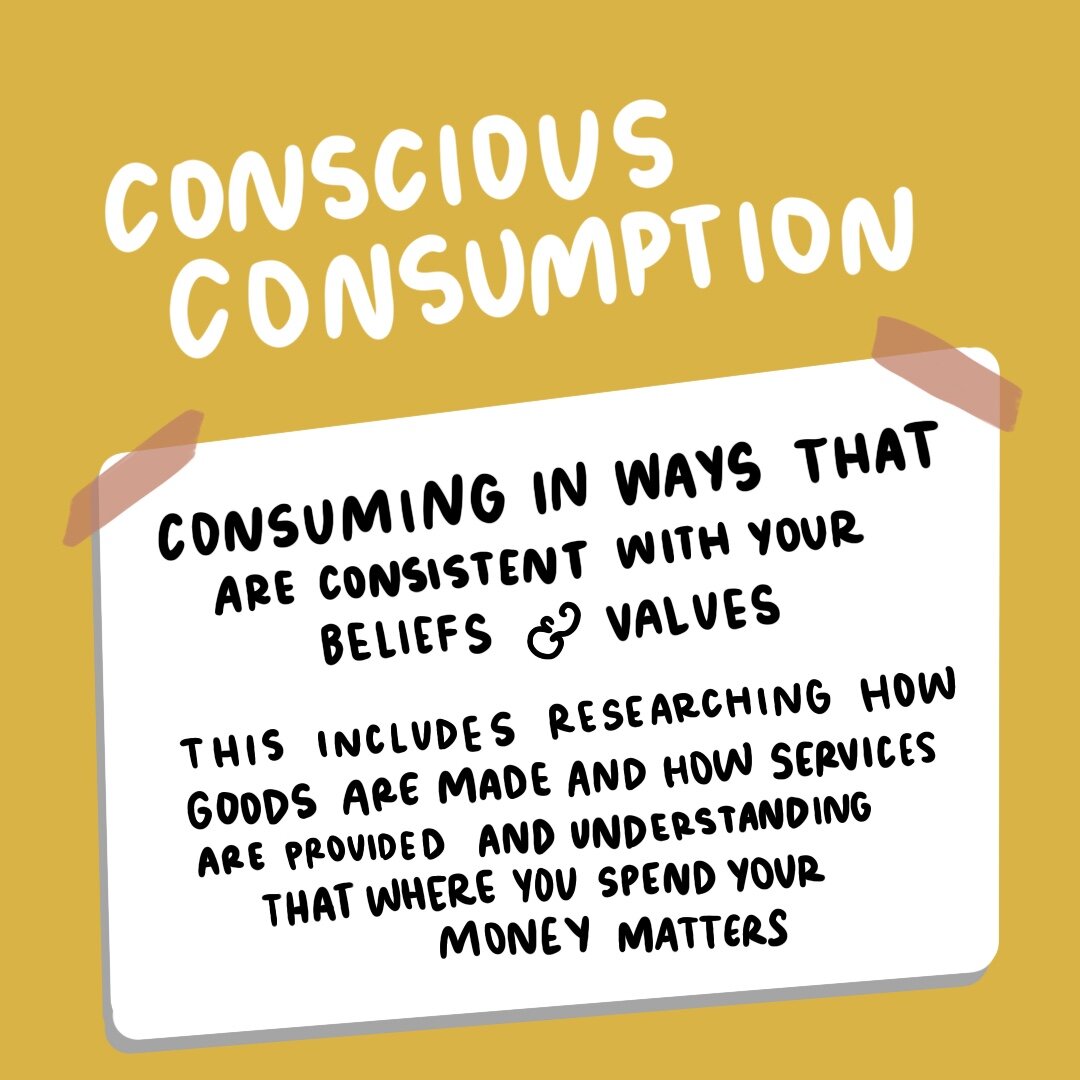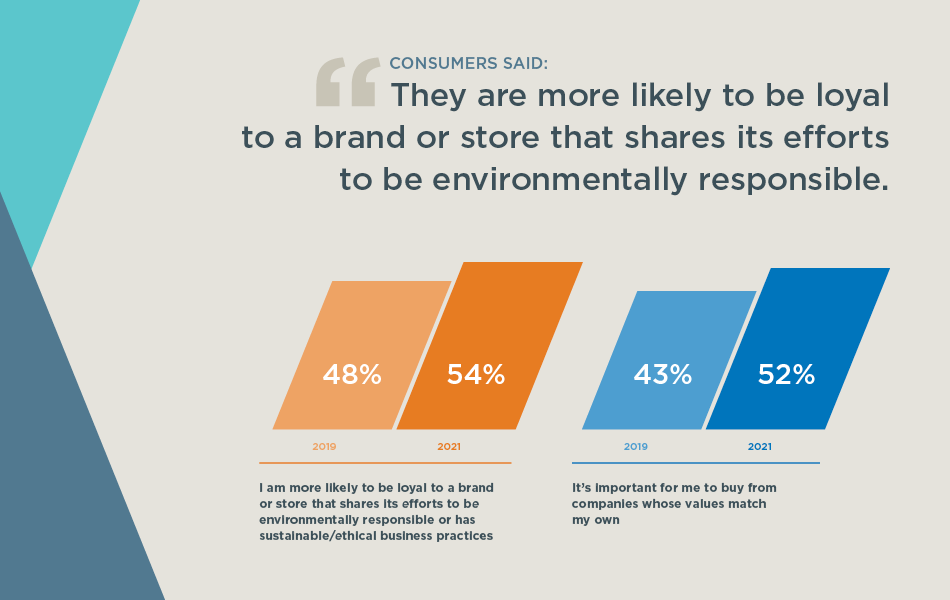Content
SHARE

In recent years, a powerful force has emerged in the world of business: the conscious consumer. These individuals desire products and services that meet their needs and are deeply committed to sustainability and ethical practices. Their purchasing decisions are no longer solely based on price and convenience but also on businesses’ impact on the environment, society, and future generations.
Understanding the Conscious Consumer
As sustainability has become a global issue, consumer attitudes and behaviours have evolved in response. What was once a niche movement has now become mainstream, with more and more individuals prioritising sustainability in their purchasing decisions.
One of the key drivers behind this shift is a growing understanding of consumption’s environmental and social impact. People are becoming increasingly aware of our planet’s finite resources and the consequences of overconsumption. As a result, they seek products and services that align with their values and positively impact the world.
Sustainability now influences every stage of the consumer journey, from product research and comparison to purchasing. Consumers seek information about a company’s environmental policies, supply chain practices, and overall commitment to sustainability. They want to support businesses that align with their values and positively impact society.
When it comes to product research, consumers are no longer solely focused on price and quality. They also consider the environmental and social implications of their choices. For example, when looking for a new smartphone, consumers may research the manufacturing process to ensure it is environmentally friendly and that workers are treated fairly. This shift in consumer behaviour has led to an increase in demand for sustainable and ethically produced products.
(Source: Dressember)
Furthermore, consumers are now more conscious of a product’s entire lifecycle. They want to know if a product is recyclable or will end up in a landfill after use. This awareness has led to increased popularity of products designed with circularity in mind, meaning they can be easily recycled or repurposed at the end of their life.
Another aspect of consumer behaviour influenced by sustainability is the rise of the sharing economy. Instead of owning and consuming products individually, consumers now embrace sharing resources. This can be seen in the popularity of ride-sharing services like Uber and accommodation-sharing platforms like Airbnb. By sharing resources, consumers can reduce waste and minimise their environmental impact.
Moreover, sustainability has also impacted how consumers perceive and interact with brands. Companies that prioritise sustainability and demonstrate a genuine commitment to environmental and social responsibility are more likely to gain the trust and loyalty of consumers. In contrast, businesses seen as environmentally irresponsible or engaged in unethical practices may face backlash and declining consumer support.
Overall, the intersection of sustainability and consumer behaviour is a complex and multifaceted phenomenon. Consumers are increasingly aware of the environmental and social impact of their choices and are actively seeking sustainable alternatives. This shift in consumer behaviour has the potential to drive positive change and encourage businesses to adopt more sustainable practices. As sustainability continues to gain prominence, consumer attitudes and behaviours will likely continue to evolve, shaping the future of the marketplace.
(Source: Vericast)
The Impact of Conscious Consumerism on Businesses
The rise of conscious consumerism has forced businesses to adapt and rethink their strategies. It is no longer enough to simply provide a quality product or service. Companies must demonstrate their commitment to sustainability and ensure transparency in their practices.
Adapting business strategies for the conscious consumer requires a holistic approach. This includes incorporating sustainable practices into all operations, from sourcing raw materials to manufacturing processes. It also involves communicating these efforts to consumers clearly and transparently, building trust and loyalty.
Transparency has emerged as a key element of sustainable business practices. Conscious consumers want to know where their products are coming from, how they are made, and their impact on the world. By providing this information upfront, businesses can build customer trust and differentiate themselves in the market.
(Source: Food Navigator)
The Future of Sustainability as a Market Force
As conscious consumerism continues to gain momentum, its impact on the market is projected to grow. It is no longer a passing trend but a permanent shift in consumer attitudes and behaviour. Businesses that fail to recognise and adapt to this shift risk being left behind.
Looking ahead, several predicted trends in conscious consumerism exist. As consumers become more informed and demanding, the demand for sustainable products and services is expected to increase. As a result, businesses will need to invest in innovation and develop sustainable alternatives that meet consumer needs without compromising on quality or functionality.
Furthermore, the long-term effects of sustainability on the market are likely to be significant. As businesses shift towards sustainable practices, industries will be pressured to become more environmentally and socially responsible. This will require collaboration and innovation on a global scale as businesses work together to find solutions to complex challenges.
In Conclusion
The conscious consumer’s rise and commitment to sustainability has transformed the business landscape. Businesses can no longer ignore their impact on the world. To succeed in this new era, companies must understand and embrace the values of the conscious consumer, adapting their strategies and practices accordingly. By prioritising transparency, sustainability, and ethical practices, businesses can align with the values of conscious consumers and contribute to a more sustainable future.
Frequently Asked Questions About How Sustainability Became a Market Force
What is a Conscious Consumer?
A conscious consumer considers the environmental, ethical, and social impact of their purchases and chooses products and services that align with their sustainability and corporate responsibility values.
How Has Sustainability Become a Market Force?
Sustainability has become a market force as consumers increasingly demand eco-friendly products and transparent business practices. This prompts companies to innovate in sustainable production, reduce waste, and enhance their corporate social responsibility.
What Impact do Conscious Consumers Have on Businesses?
Conscious consumers drive businesses to adopt more sustainable practices, such as using renewable energy sources, reducing packaging waste, and ethically sourcing materials to meet customer expectations and stay competitive
How Can Businesses Cater to Conscious Consumers?
Businesses can cater to conscious consumers by incorporating sustainability into their core values, being transparent about their supply chains, engaging in fair trade practices, and continuously improving their environmental and social impact.














